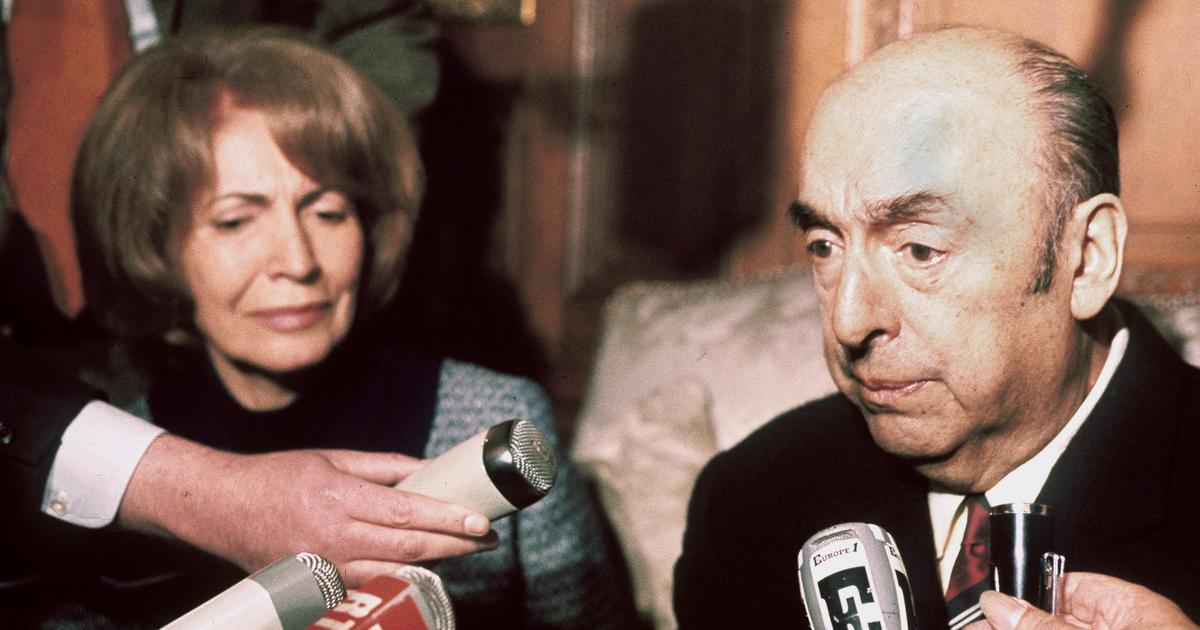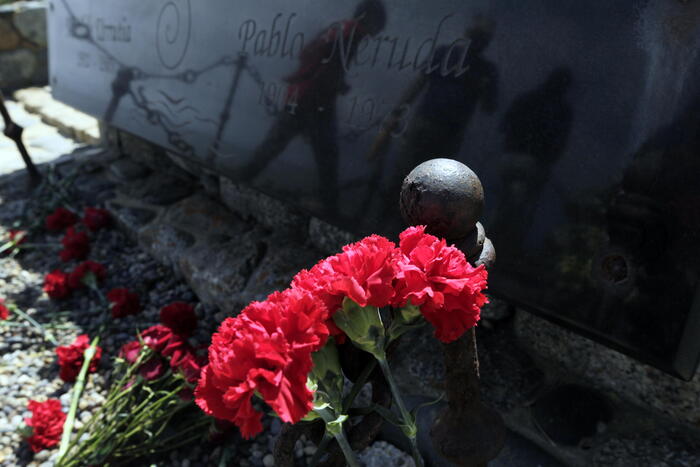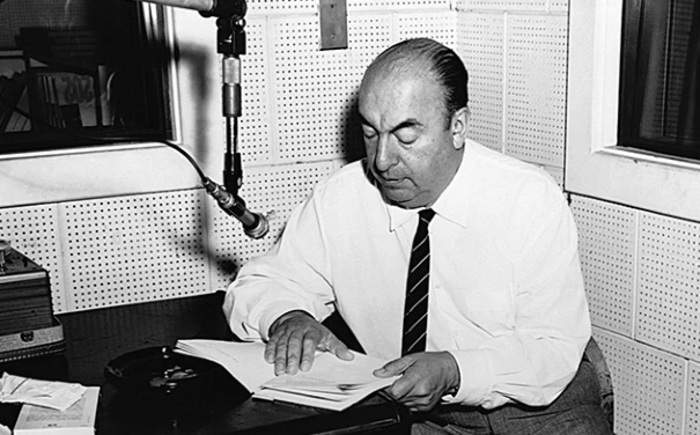47 years after his death, on September 23, 1973, a typewritten sonnet by the poet Pablo Neruda was presented in Chile.
It is the first version of
Sangre de toro
, a 1965 poem in honor of a popular Hungarian wine.
He wrote it during a pleasure trip that he made in August of that year to Hungary, together with the Guatemalan writer Miguel Ángel Asturias and their respective partners.
Both wrote verses while they traveled the country, ate and drank, without imagining that they would soon receive the Nobel: Asturias in 1967 and Neruda in 1971. “Reviewing the memories of my mother, who had just passed away, I found a plastic box with old photos, documents and letters.
Suddenly, a paper appeared, thin and in fair condition.
It was a poem by Neruda, signed by her ”, says the Chilean doctor Marcia Telteinboim, who made the discovery.
The poem goes like this:
"Robusto came, your family
he wore no headbands or diamonds:
blood and sweat put on his forehead
a fragrant purple rose.
The rose became an urgent bull:
blood became navigator wine
and the wine became different blood.
Let's drink this rose, walker.
He came from agriculture with grandparents,
of mistreated and beloved hands,
bull with a velvet heart.
Your deadly goring gives us life
and leaves us lying on the ground
breathing and singing through the wound. "
Four years after the trip, in 1969, both poets published the book
Eating in Hungary
.
It was published in Hungarian, Spanish, French, German and Russian.
Unlike the first version that now appears, the poem that is included in that edition has an additional word in the first verse:
“Robusto vino, tu familia ariente,”
indicates the definitive poem.
For Grínor Rojo, an academic at the Center for Cultural Studies of the University of Chile, a student of Neruda's work, the Chilean "was the one who wrote the poem, without any doubt."
“It is a very Nerudian poem, due to its figurative richness.
Neruda is a poet of extraordinary sensory imagination and the five senses are present in this very short text.
This is Pablo Neruda in full, ”explains Rojo.
The first of the texts that make up the 1969 book gives an account of the spirit in which it was composed:
"Eating is fashionable!
With stone and stick, knife and scimitar, with fire and drum the peoples advance to the table.
The great malnourished continents explode in a thousand flags, in a thousand independences.
And everything goes to the table: the warrior and the female warrior.
On the world's table, with everyone at the table, doves will fly.
Let us search the world for the happy table.
Let's find the table where the world learns to eat.
Where you learn to eat, drink, sing!
The happy table ".
The sonnet
Sangre de toro
has another notable peculiarity: it is a sonnet (a very special poetic composition) written by an author who, precisely, was not characterized by writing with established forms.
“I think that, in this sense, the formal writing of Neruda could be compared with the realistic painting of Pablo Picasso.
It is not what the artist does or did mostly, in either case.
But when that happens, the result is a waste of mastery, ”says Rojo, who indicates that another exception in Neruda's work is the
One Hundred Love Sonnets
, from 1959.
The typed poem was almost miraculously saved.
The poet and his wife, Matilde Urrutia, were close friends with the lawyer Sergio Telteinboim and his wife, the foreign trade graduate Perla Grinblatt.
They shared the membership of the Communist Party and in the 1960s, when the Telteinboim lived with their three daughters in the city of Viña del Mar, they frequently attended meals and famous parties that Neruda held at his home in Valparaíso,
La Sebastiana
.
The poet entertained his guests with a drink, a good table and with unpublished verses, which he gave away in small pieces of paper that today are a treasure: "Any manuscript or mechanescript of his that we have in our possession, like this one from
Sangre de toro
, is a jewel" notes Professor Rojo.
The Telteinboim Grinblatt had a fortnight of these verses by Neruda, but most did not last beyond the 1973 coup, when the homes of left-wing families were raided by the military and the residents themselves disposed of the papers. and compromising documents, in the midst of political repression.
The youngest of the daughters, Marcia, was 11 years old and remembers those days of "turmoil and fear" where a good part of the material memory of her family was lost.
With their father passed away in 2006, the descendants never imagined that
Sangre de toro
had survived among the memories of their mother's apartment in Santiago de Chile.
"Probably, not even she knew that this document was kept," says Marcia, whose mother died in Santiago de Chile on July 14, at the age of 94.
Along with the paper "thin and in regular condition" where the poem was typed, that winter night the doctor also found an invitation from 1961 to the opening of
La Sebastiana.
Together with her sisters Patricia and Berta, they decided to donate both documents to the Andrés Bello Central Archive of the University of Chile, in a virtual ceremony that was held this Wednesday.

/cloudfront-eu-central-1.images.arcpublishing.com/prisa/UAHPXEAZR5AEVBOCGIFNSAIYHQ.aspx)





/cloudfront-eu-central-1.images.arcpublishing.com/prisa/2GNBO4PDRBFIZPEA56Z5BU5F7U.jpg)







